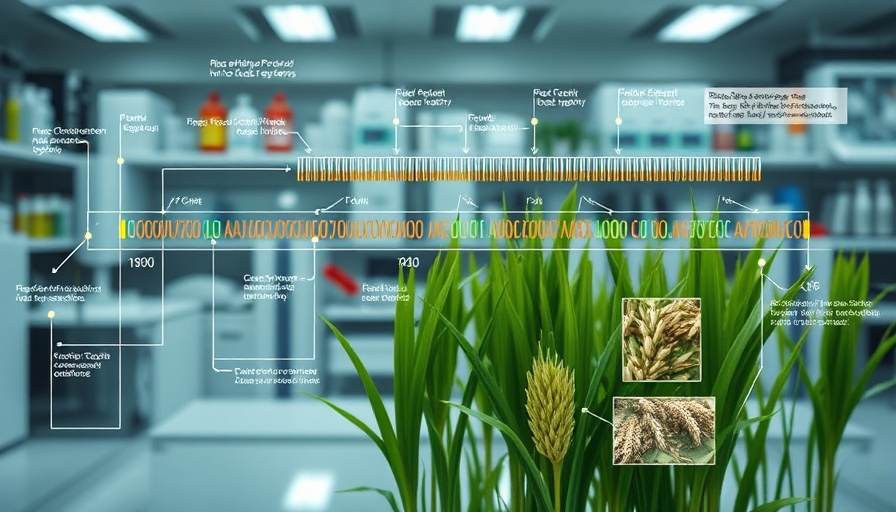
Revolutionizing Nutrition: The Breakthrough of Gene-Edited Rice
A remarkable breakthrough in agricultural science has emerged from the laboratories of the Chinese Academy of Sciences. Here, a dedicated team of researchers has successfully engineered rice varieties capable of producing coenzyme Q10 (CoQ10), a vital compound known for its significant health benefits. This innovation not only has the potential to enhance the nutritional value of a staple food but also exemplifies how modern technology can pave the way for healthier lifestyles.
The Importance of Coenzyme Q10
CoQ10 plays a crucial role in human health, particularly in maintaining cardiovascular function. As a powerful antioxidant, it protects cells from damage caused by harmful free radicals. Additionally, CoQ10 is an essential component in the mitochondrial electron transport chain, which is vital for energy production in cells. Unfortunately, common cereal crops like rice primarily produce CoQ9, a form that is less beneficial for human health. The development of rice that synthesizes CoQ10 could significantly enhance dietary intake of this important nutrient.
A Deep Dive into Genetic Modifications
Professors Chen Xiaoya and Gao Caixia led the team that undertook this innovative project. Utilizing targeted gene editing techniques, they modified just five amino acids in the Coq1 enzyme, which governs CoQ synthesis in rice plants. This meticulous approach allowed them to create rice varieties with the capability to produce CoQ10 effectively. In laboratory tests, these genetically edited rice lines achieved a production level of up to 5 μg/g per grain.
Environmental and Economic Advantages
This breakthrough comes with considerable environmental and economic potential. By increasing the levels of CoQ10 in rice, a crop that is already widely consumed, there is less reliance on supplements and other food sources for this nutrient. This method of nutritional fortification is cost-effective and offers a sustainable approach to combating deficiencies commonly found in diets across the globe.
Future Implications for Agriculture
The implications of this research extend far beyond the borders of China. Successful development of CoQ10-producing crops marks a significant milestone in agricultural biotech, demonstrating the feasibility of creating functional foods through gene editing. As the global population continues to grow, innovative solutions in crop breeding can help ensure food security while promoting public health.
Leveraging Technology for Better Health
This achievement also exemplifies the integration of big data and artificial intelligence in the field of crop breeding. The researchers used advanced analytical methods to study over 1,000 terrestrial plant species, aiding their understanding of the molecular mechanisms that dictate CoQ synthesis. Such approaches herald a new era in agricultural development, where technology significantly enhances the capacity to produce nutrient-rich crops efficiently.
A Bright Future Ahead
As we look towards the future, the evolution of gene-edited crops like CoQ10 rice will undoubtedly play a critical role in shaping nutrition strategies worldwide. By harnessing the power of modern science, we can make strides towards improving public health and sustainability, moving closer to a world where nutritious food is accessible to all.
 Add Row
Add Row  Add
Add 




Write A Comment